What are Control Cables
Control cables are an essential component of various electrical systems, serving as the medium for conveying electrical signals to control the functioning of equipment. These specialized cables are designed to facilitate the operation of devices by transmitting control commands from a central control unit to the designated machinery. They are commonly used in a wide array of settings, from industrial machines and construction equipment to electronic devices and power stations.
The construction of control cables typically involves one or more insulated wires bundled together within a protective sheath. The materials used for insulation and sheathing can vary, with PVC, PE, and rubber being common choices due to their resistance to environmental factors like heat, moisture, and chemicals. Control cables can also incorporate shielding to protect against electromagnetic interference, which is critical in environments with substantial electronic noise.
The operation of control cables hinges on their ability to maintain signal integrity over distance and through potentially harsh conditions. The conductor material often consists of copper or bare copper, chosen for its excellent conductivity and durability. In applications where the control cable will be subject to movement or flexing, such as in robotics or machinery controls, flexibility is a key characteristic, often achieved through the use of stranded conductors and pliable insulation materials.
For businesses in industries such as manufacturing plants, construction works, or machinery repair shops, control cables are indispensable for the smooth operation of their equipment. They ensure that signals are accurately transmitted between controls and devices, enabling precise and reliable machine function.
Types of Control Cables
Understanding the various types of control cables is crucial for selecting the right one for your application. Here's an overview of different types:
PVC Insulated Control Cables: These cables feature insulation made from Polyvinyl Chloride (PVC) and are known for their versatility and durability. They are resistant to fire, chemicals, and varying weather conditions, making them suitable for industrial environments.
Rubber Insulated Control Cables: With rubber as the insulating material, these cables offer excellent flexibility and are ideal for environments where cables need to withstand frequent bending and twisting. Applications include mobile control panels and connections that require movement.
Shielded Control Cables: These cables are designed with a metallic shield around the conductors to protect signal integrity from electromagnetic interference (EMI). They are essential in electronic applications where EMI can disrupt signal transmission.
Multicore Control Cables: Featuring multiple cores within a single cable sheath, multicore control cables can manage complex control circuits with multiple signals. They are widely used in building management systems and industrial control panels.
Flexible Control Cables: Engineered for applications that involve movement or vibration, flexible control cables have a high strand count in their conductors and pliable insulation materials. They’re often found in automation robotics and on assembly lines.
Each type has its unique set of characteristics tailored to specific use cases across various industries.
How to choose Control Cables
When selecting control cables for your business needs on Alibaba.com, consider several factors that will ensure you get the appropriate type for your application:
Insulation Material: Assess the environmental conditions the cable will be exposed to. For instance, PVC insulation works well for general industrial applications while rubber insulation is suited for flexible requirements.
Conductor Material: Copper is a common choice due to its excellent electrical conductivity. Ensure that the conductor material meets your system’s power requirements.
Shielding: In environments with high levels of electromagnetic interference, opt for shielded control cables to preserve signal integrity.
Flexibility: If your application involves movement or frequent changes in cable positioning, prioritize flexible control cables that can withstand bending without damage.
Core Configuration: Consider multicore options if you need to run multiple control signals within one cable sheath. This can simplify installation and maintenance.
Industry Standards: Ensure that the cables meet relevant industry standards for safety and performance in your specific field.
By carefully considering these factors in relation to your specific needs and consulting Alibaba.com’s wide selection of suppliers and product options, businesses can make informed decisions when purchasing control cables in bulk.
Best Control Cables on Alibaba.com
Alibaba.com stands as a premier online marketplace for businesses looking for reliable sources of control cables. This platform connects you directly with suppliers offering a broad spectrum of control cables suited for various applications across multiple industries. Whether you’re involved in construction, machinery manufacturing or electronics, Alibaba.com’s extensive network ensures you can find products tailored to your specific requirements.
The diversity of products available on Alibaba.com includes everything from flexible steel wire inner brake throttle control cables with end fittings suitable for automotive use, to multicore PVC insulated flexible electric control cables essential in industrial automation systems. Each product listing provides detailed information on specifications like conductor material, insulation type, number of cores, and applicable industries so that you can make an informed purchase decision tailored precisely to your business's needs.
Moreover, Alibaba.com enhances your purchasing experience by offering services such as Trade Assurance which protects your payments until delivery is confirmed. This commitment to secure transactions coupled with features like mobile purchasing capabilities and support for local languages makes Alibaba.com not just an online marketplace but a multifaceted tool aimed at simplifying global trade for small and medium-sized businesses alike. By prioritizing quality assurance and customer satisfaction through these services, Alibaba.com has become an invaluable resource for companies worldwide seeking reliable suppliers and high-grade products.
Common FAQs for Control Cables
What are control cables used for?
Control cables are used to transmit signals to control the operations of equipment. They are essential in various applications including industrial machinery, construction equipment, electronic devices, and power stations.
How do I determine the right type of control cable for my application?
To determine the right control cable, consider the insulation material, conductor material, whether shielding is required, flexibility needs, core configuration, and compliance with industry standards relative to your specific application.
What insulation materials are available for control cables?
Common insulation materials for control cables include PVC (Polyvinyl Chloride), PE (Polyethylene), and rubber, each offering different levels of durability and resistance to environmental factors.
Are there different conductor materials used in control cables?
Yes, the primary conductor materials used in control cables are copper and bare copper, known for their excellent electrical conductivity and suitability across a range of applications.
What does it mean when a control cable is shielded?
A shielded control cable has a metallic shield around the conductors to protect against electromagnetic interference (EMI), ensuring signal integrity in environments with electronic noise.
Can control cables be used in environments with high levels of electromagnetic interference?
Yes, shielded control cables are specifically designed to maintain signal integrity in environments with high levels of electromagnetic interference.
What should I consider if my application requires flexible control cables?
If your application requires flexibility, look for control cables with high strand count conductors and pliable insulation materials that can withstand bending and movement without damage.
How many cores can a multicore control cable have?
Multicore control cables can come with various numbers of cores, typically ranging from 2 up to 100 or more, depending on the complexity of the control circuit they are designed to manage.
Are there specific control cables for outdoor or harsh environment applications?
Yes, some control cables are specifically designed with robust insulation and sheathing materials to withstand outdoor or harsh environmental conditions such as extreme temperatures or exposure to chemicals.
What industries commonly use control cables?
Control cables are commonly used in industries such as machinery repair shops, retail, construction works, farms, printing shops, building material shops, advertising companies, garment shops, and manufacturing plants.
How does conductor size affect the performance of a control cable?
Conductor size affects the current-carrying capacity and electrical resistance of the cable. Larger conductor sizes can carry more current and have lower resistance, which is important for longer distances or higher power applications.
Can I customize the length and specifications of a control cable?
Many suppliers offer customization options for the length and specifications of a control cable to meet specific requirements of an application or project.
What should I look for in terms of quality assurance for control cables?
Look for suppliers that provide product certifications or adhere to recognized industry standards. This can give you confidence in the quality and reliability of the control cables you are purchasing.
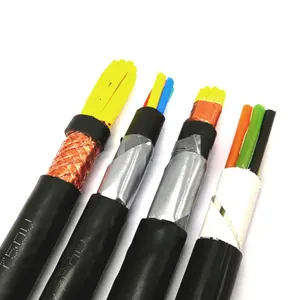










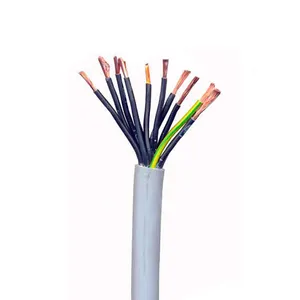



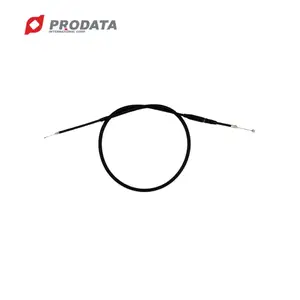







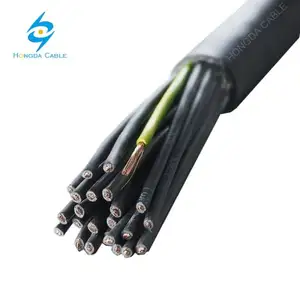

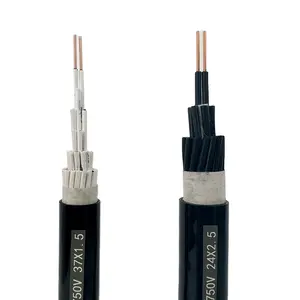





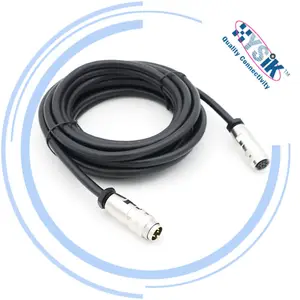
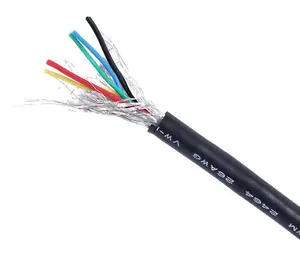


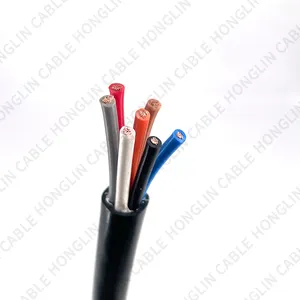

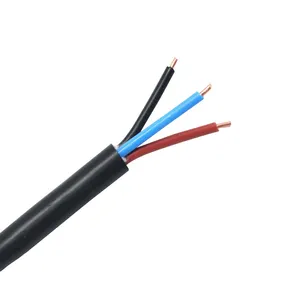





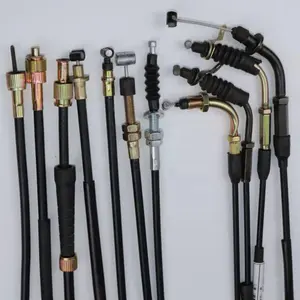





























 浙公网安备 33010002000092号
浙公网安备 33010002000092号 浙B2-20120091-4
浙B2-20120091-4